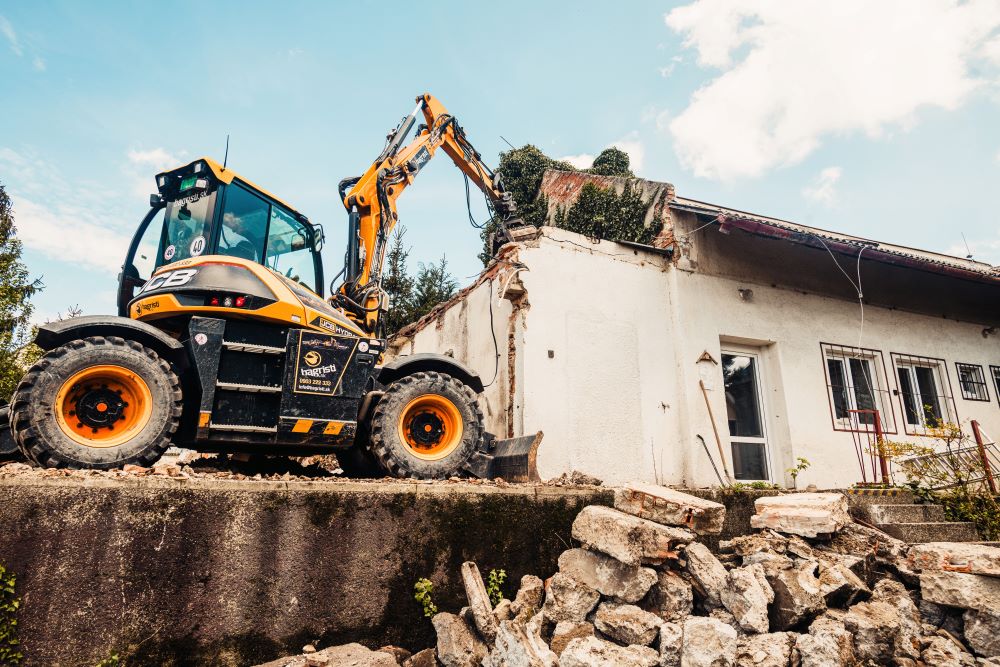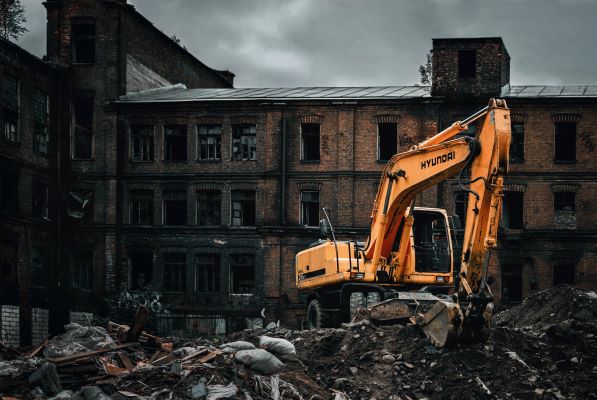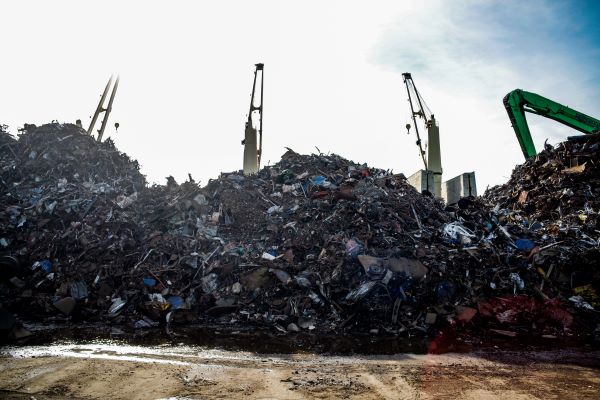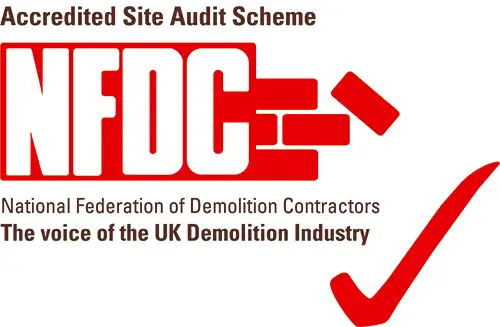
The UK construction industry generates a lot of waste material, with 61% of all UK waste in 2018 generated by the construction sector. With material recycling systems in place, this waste can be repurposed within the industry, often on the same site to create new substrates.
What Is Construction Material Recycling?
Exactly what it says on the tin; construction material recycling or construction waste recycling is when excess or waste materials are processed so that as much as possible can be reused. This may be through salvage, crushing or chemical processing to create new materials.
Construction waste can include:
- Concrete, bricks, tiles, cement, and ceramics
- Wood, glass, and plastic
- Insulation and asbestos materials
- Metallic waste (such as pipes)
- Soil and stones
- Paints and varnishes
- Adhesives and sealants
Only some of these materials are recyclable, but all must be disposed of responsibly.

Importance of Construction Waste Recycling
We aim to manage construction and demolition waste properly for a variety of reasons, including:
Compliance
There are legal requirements around what happens to construction and demolition waste of all kinds. Understanding where recycling is possible and where safe disposal is necessary can help ensure your business is in line with current legislation.
Health and Safety
Segregating and handling waste correctly reduces risks of harm to employees, stakeholders and the public. Potentially hazardous materials that are disposed of incorrectly, such as asbestos could cause lifelong health issues or injury, as well as environmental damage. If materials are not segregated properly, contamination during the recycling process could make some materials unusable for safety concerns.
ESG Gains
Since demolition itself has an environmental impact, the carbon footprint of a new build can be dramatically reduced by reusing materials from previous demolitions. Rather than shipping new aggregate, using recycled crushed concrete or mortar saves money and emissions and contributes to a circular economy. Businesses can demonstrate the steps taken to reduce the environmental impact of their building projects in ESG reporting, improving their reputation and client relationships.
Construction Waste Recycling: Methods And Process
The main demolition waste materials that are easily recycled are concrete, brick, metal, glass and wood. Some common ways these materials are reused include:
- Concrete: crushed and used as a substrate for roads and pavements, or as aggregate for new concrete
- Brick/Masonry: crushed and used for gravel, smaller bricks or sand
- Metal: melted and recast for new metal items such as rebar
- Glass: crushed for sand or gravel, or melted down and reconstituted into new panes
- Wood: chipped for landscaping mulch, fuel, composite boards such as MDF, and pallets
Metal and glass can be entirely recycled to provide new materials for future use. This type of recycling must be done in specialist facilities that can manage large volumes of material generated by demolition or dismantling.
Concrete, brick and masonry are easily recycled onsite. With heavy-duty crushing equipment, we can repurpose hardcore debris into aggregates, gravel and substrates for roads, car parks, and pathways. On a large project, we can crush demolition waste to recycle it for the new construction works, saving material transport and the carbon footprint of the project.
Sustainable Demolition: Construction And Demolition Waste Recycling
Demolition waste recycling can:
- Save space in landfills
- Avoid new resources that require mining
- Reduces transport needs and carbon footprint
- Creates jobs in the construction waste handling industryD
- Lowers cost estimates
- Help meet ESG goals
Reusing materials in commercial demolition is often reserved for large-scale projects and those where landowners plan to build new structures immediately, rather than sell the levelled ground. However, demolition waste from multiple smaller sites may be segregated, combined and stored for future use, or sold wholesale as a sustainable alternative to new materials.
Ensure you speak with your demolition contractors about how construction waste recycling can work on your project At PBM we offer concrete and hardcore crushing among our services and are happy to discuss requirements.








